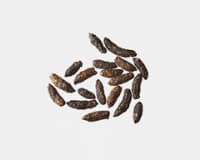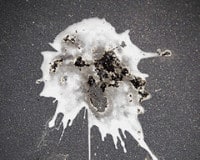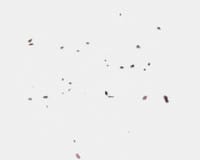Identifying Pests by their Droppings
If you’re seeing some pest droppings around your home or business but you aren’t sure of the culprits, you’ve come to the right place!
Identifying the source of your pest problem is important because different types of pests require different solutions.
Read on to find out about the most common pest droppings you’re likely to find in your home or business premises in Australia (and what you can do about it).
Rat droppings

Rats have long been a problem in Sydney. Recent estimates have Sydney’s rat population at somewhere between 500 million and a billion!
Health risks
Rats pose a serious health risk because they carry disease-causing bacteria on their bodies, in their faeces and in their urine. They love scouring for food, and they defecate and urinate frequently.
What to do
The two main ways to get rid of rats are via traps and poison baits.
Mice droppings

They’re usually about the size of a grain of rice (or even smaller). Mice themselves are smaller than rats, so it makes sense from them to do smaller droppings.
Health risks
Like rats, mice can carry a range of diseases, bacteria and parasites that are harmful to humans.
What to do
As with rats, the two main ways to get rid of mice are via poison baits and traps.
Possum poo

A common species is the ring-tail possum. Its poo is pellet-shaped, usually about one centimetre long and either dark brown or black.
Health risks
Possum poo can be dangerous if it’s accidentally ingested. For example, if you handle it to clean up and don’t thoroughly wash your hands afterwards.
What to do
If you notice possum poo in or around your property, remove it as soon as you can and disinfect the area. And of course, make sure you wash your hands thoroughly after cleaning it up.
You can also take some simple measures to make your property less attractive to possums, like:
- removing potential food sources such as outdoor compost bins or pet water bowls that are regularly lying around your yard.
- blocking off any potential access points to the inside of your roof (where possums may be tempted to find cosy shelter).
- adding outdoor sensor lights to act as a deterrent.
 Have you confirmed what’s been leaving doo-doos around your home or business? Or need a professional eye? Get Your Free Pest Assessment Now! today to arrange an inspection.
Have you confirmed what’s been leaving doo-doos around your home or business? Or need a professional eye? Get Your Free Pest Assessment Now! today to arrange an inspection.Cockroach droppings

The droppings of smaller cockroaches resemble coffee grains or black pepper, while larger cockroaches tend to leave behind slightly larger, solid, dark-coloured pellets. These pellets are still much smaller than mouse droppings though.
Health risks
Like nearly all pests, cockroaches can carry a range of bacterial and viral diseases on (or in) their bodies.
What to do
Cockroach baits, traps, sprays and repellents can help you to get rid of this pest. And make sure you don’t leave food scraps lying around to attract them in the first place.
Pigeon poo

Healthy pigeon droppings tend to be firm and white or brown in colour. The droppings of unhealthy pigeons are similar colours, but less firm.
Health risks
Pigeons (and their droppings) can carry a range of diseases that can cause lung infections among humans, among other potential issues.
What to do
One of the most effective ways to get rid of pigeons around your premises is to block their access to areas where they’ll be able to nest and congregate.
Termite droppings

They look like dust or small wood shavings.
Health risks
Unlike many other pests, termites don’t carry diseases that are overly harmful to humans. But some people can have allergic reactions to them.
Termites can certainly damage your financial health though! They like to eat wood, which means they can chomp away at your property’s foundations. They can cause huge damage.
What to do
If you suspect that termites have infested your property, call a reputable pest control professional (us) as soon as possible for a termite inspection. Don’t delay!
You should also have a regular treatment to termite-proof your home.
Bed bug droppings

Wherever you might find them, they’ll be dark-coloured spots about the size of a dot that you could make with a marker pen.
Health risks
Bed bugs aren’t known to spread diseases to humans, but they can cause you to itch (which will disrupt your sleep). And no-one wants uninvited pests in their bed.
What to do
Getting rid of bed bugs usually requires chemical treatments. Make sure you use a safe insecticide that’s suitable for use on bedding. Better yet, hire a professional who gets rid of pests like bed bugs for a living.
QUIZ: How well do you know your local pests? Take our Quiz and find out.
How we can help
At Forensic Pest Control, our expert team can help you get rid of any pests in your home or business premises. The simple fact is that if you’re seeing droppings, your property is already infested with one or more types of pest.
We service a wide range of residential, industrial and commercial properties in the greater Sydney area. We guarantee our services and we only use non-toxic, environmentally friendly pest-eradication products.
Get Your Free Pest Assessment Now! today to find out how we can make pests and their droppings a distant memory for you!
- 6 Early Signs of Termites In and Around Your Home - December 7, 2022
- Does Home Insurance Cover Termite Damage? What All Homeowners Ought To Know - October 27, 2022
- 7 Reasons Why You Don’t Want Birds Nesting Under Your Solar Panels - May 23, 2022


 Nick Laforest
Nick Laforest Mohammad Anwar
Mohammad Anwar